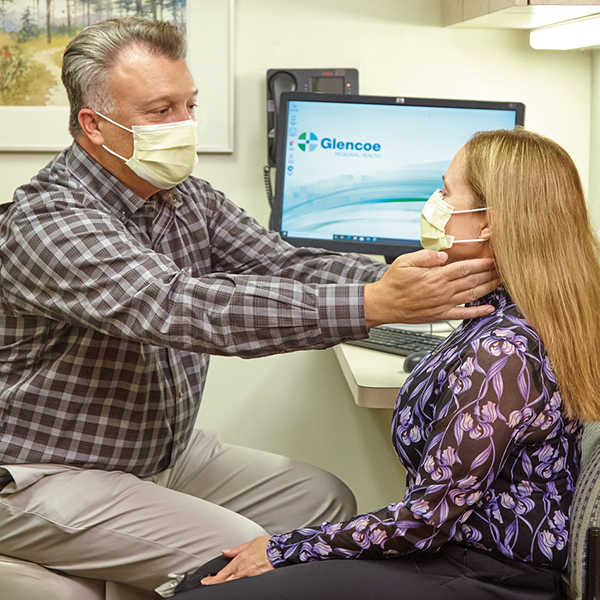
Glencoe Regional Health’s family medicine physician, Connor Hedstrom, DO, answers a few of the most commonly asked questions about men’s health and talks about the importance of taking proactive steps to maintain good health.

Why do men avoid going to the doctor?
A study done by the Cleveland Clinic in 2019 found that 72% of men would rather do household chores than go to the doctor’s office! Of the men who go to the doctor, some reported that they weren’t completely honest with the doctor, with the top reason being they were embarrassed to tell the truth. I want men to know that going to the doctor does not need to be uncomfortable. I try to create a welcoming, non-judgmental atmosphere so that my patients feel safe to talk about their health.
In the same study men stated they would rather talk about sports, current events, or their job compared to their health. That’s okay! Talking about things not related to your health lets me know more about you and the goals you have. I want the visit to be enjoyable and feel like a conversation and not like an interview.
Why is it important for men to get an annual exam?
Think of an annual check-up as one of the best ways you can take care of yourself. It is an opportunity to reduce your risk of illness in the future. A yearly exam allows your primary care provider to assess your current health, identify areas of concern, and work with you on a plan that will help you live your healthiest life.
What can men expect during an annual exam?
During a check-up appointment, we discuss any questions or concerns you may have about your health. We’ll review the recommended immunizations and cancer screenings. We check your blood pressure and if it is elevated, we discuss lifestyle modifications that can lower the risk of developing heart disease – that may include diet changes, increasing exercise, and quitting smoking. Based on our conversation and the exam, I may order blood tests to screen for diabetes and to check cholesterol levels.
We can review the list of prescription medications you’re taking, ensure you are taking them correctly, make any necessary changes, and order refills if needed.
There are a number of health conditions we can discuss during the visit, based on age and risk factors. As we age, certain medical conditions can become more prominent such as erectile dysfunction, osteoarthritis, and cognitive decline (dementia). We can also discuss and screen for mental health conditions such as anxiety and depression, which can affect us differently at different stages of our lives.
What is one health concern that affects men differently than women?
Heart disease. Although it is the #1 cause of death for both men and women in the U.S., it tends to appear in men a decade earlier than in women.
How do you personally take care of your own health?
I try to stay as active as possible doing the things I enjoy doing. My favorite things are gardening with my wife, walking our dogs, and golfing. When I am active, I am improving my overall health and I do not even feel like I am “working out”.
Dr. Hedstrom currently sees patients at our Glencoe Clinic. In the future, he will also be at the Lester Prairie Clinic and the Stewart Clinic. To schedule an appointment with him, please call 320-864-7816.








